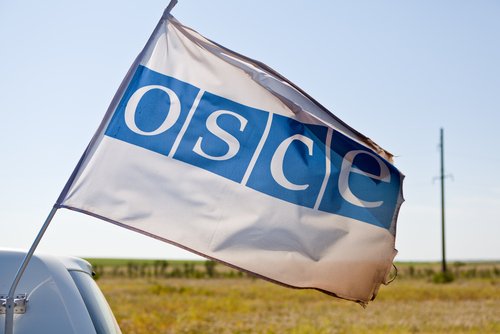Brussels (Brussels Morning) The Organisation for Security and Cooperation in Europe (OSCE) will not be sending observers to monitor the 2021 Russian legislative elections in September, citing limitations set by Russian authorities on its observation mission as the reason.
The Kremlin has limited the organisation to only 50 observers as part of its Office for Democratic Institutions and Human Rights (ODIHR) and to 10 from its Parliamentary Assembly (OSCE PA), in all, less than 10% of the number OSCE sent to observe the 2016 Duma elections in Russia.
Expressing regret that the organisation will not be represented during Russian elections for the first time since 1993, OSCE PA President Margareta Cederfelt emphasised that the small number of permitted observers would not enable the organisation to carry out its work “in an effective and thorough manner”.
Moscow cited the ongoing coronavirus pandemic as the reason for placing a limit on the number of observers. OSCE officials remarked that the current pandemic measures enforced in Russia did not appear to be incompatible with sending observers to monitor the elections.
ODIHR Director Matteo Mecacci noted that an independent determination of the number of necessary observers is “essential to all international observation”, in concluding that cancellation of the observation mission had been unavoidable, given the Russian authorities’ insistence on observer limits “without any clear pandemic-related restrictions”.
The organisation’s assessment for this year’s parliamentary elections planned to deploy 80 long-term observers and 420 short-term observers. The ODIHR and the OSCE PA had been preparing to deploy observers for several months now, and had been keeping in close contact with the Russian authorities throughout.
With the waning popularity of President Vladimir Putin’s United Russia (UR) party, the Russian authorities have been increasing the pressure on critical voices and opposition figures in te country. Prominent Kremlin critic Alexei Navalny has been in prison since February, jailed for supposedly violating terms of a suspended sentence which the European Court of Human Rights (ECHR) has declared was politically motivated.
Navalny’s anti-corruption foundation has been treated by the judiciary as an “extremist organisation” and threatened with banning. Many other independent media and rights organisations in Russia have faced charges, in what the opposition and human rights watchdogs claim is a pattern of suppression of Putin’s political opponents and civil-minded organisations.




